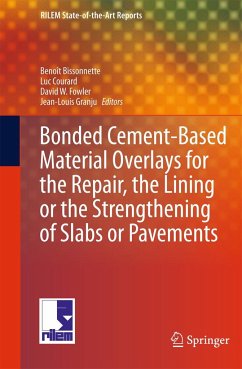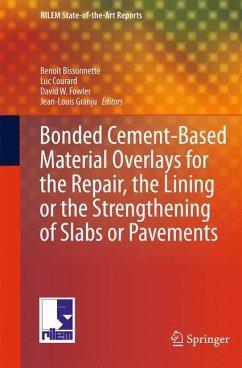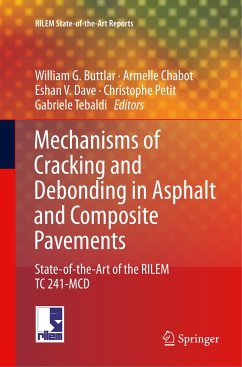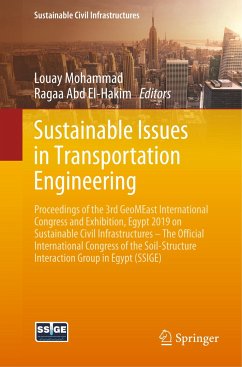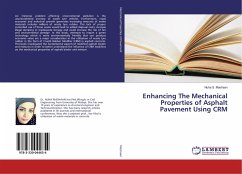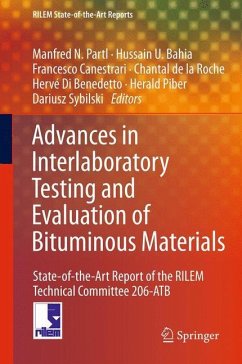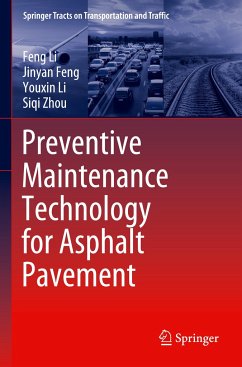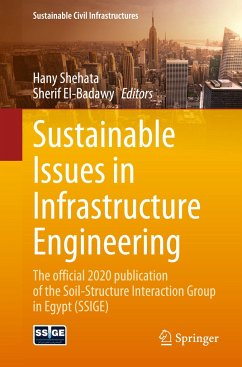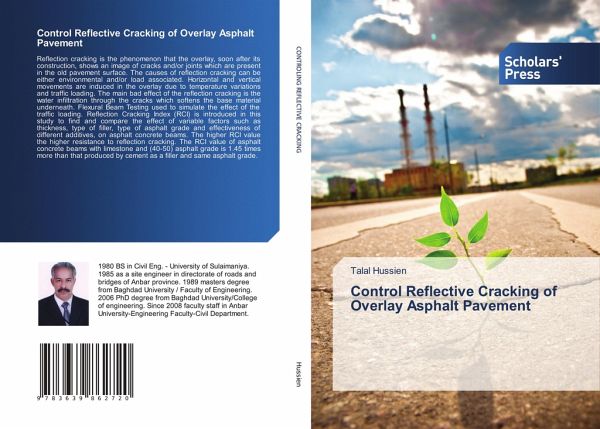
Control Reflective Cracking of Overlay Asphalt Pavement
Versandkostenfrei!
Versandfertig in 6-10 Tagen
53,99 €
inkl. MwSt.

PAYBACK Punkte
27 °P sammeln!
Reflection cracking is the phenomenon that the overlay, soon after its construction, shows an image of cracks and/or joints which are present in the old pavement surface. The causes of reflection cracking can be either environmental and/or load associated. Horizontal and vertical movements are induced in the overlay due to temperature variations and traffic loading. The main bad effect of the reflection cracking is the water infiltration through the cracks which softens the base material underneath. Flexural Beam Testing used to simulate the effect of the traffic loading. Reflection Cracking I...
Reflection cracking is the phenomenon that the overlay, soon after its construction, shows an image of cracks and/or joints which are present in the old pavement surface. The causes of reflection cracking can be either environmental and/or load associated. Horizontal and vertical movements are induced in the overlay due to temperature variations and traffic loading. The main bad effect of the reflection cracking is the water infiltration through the cracks which softens the base material underneath. Flexural Beam Testing used to simulate the effect of the traffic loading. Reflection Cracking Index (RCI) is introduced in this study to find and compare the effect of variable factors such as thickness, type of filler, type of asphalt grade and effectiveness of different additives, on asphalt concrete beams. The higher RCI value the higher resistance to reflection cracking. The RCI value of asphalt concrete beams with limestone and (40-50) asphalt grade is 1.45 times more than that produced by cement as a filler and same asphalt grade.



